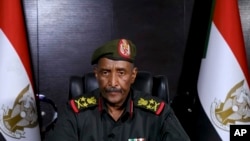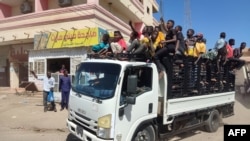Sudan, in northeast Africa, has been devastated by a war between feuding generals since April last year, and the strike in White Nile state is the latest indication of fighting spreading southwards from the capital Khartoum.
As it does, more people are forced to flee in a country which has the world's largest number of displaced, at more than 7.4 million, according to the United Nations.
The attack, 75 kilometers (47 miles) south of Khartoum, was reported by a local group known as a resistance committee, which said the fatalities came "in bombardments by the air force."
Such resistance committees once organised pro-democracy protests but now provide aid during the war, which has left more than half the population in need of humanitarian assistance, according to the UN.
Fighting erupted on April 15 between the head of the armed forces Abdel Fattah al-Burhan and his former deputy, Mohamed Hamdan Daglo, who leads the paramilitary Rapid Support Forces (RSF).
The Armed Conflict Location and Event Data Project, an analyst group, puts the death toll at more than 13,000.
In adjacent Al-Jazira state, hundreds of thousands of refugees have been displaced again — after earlier seeking safety from battles in Khartoum — as the RSF move south from the capital.
"The expansion of fighting between the SAF and the RSF into parts of central and eastern Sudan— the country's most important regions for crop production -- has driven a significant increase in humanitarian needs during the harvesting season," the UN said in a report on Sunday.
White SAF controls the skies, the RSF has the streets of the capital Khartoum, nearly all of the western Darfur region and, with its push into Al-Jazira state, shattered one of the country's few remaining sanctuaries.
Diplomatic efforts to secure a negotiated peace, notably by the United States, Saudi Arabia and, most recently, the IGAD regional bloc, have so far failed.


Forum